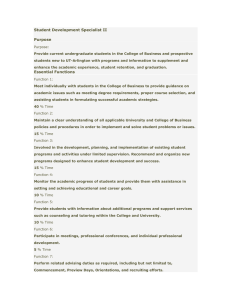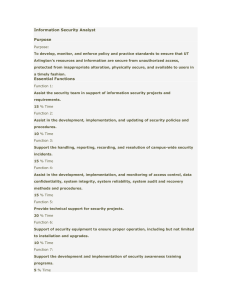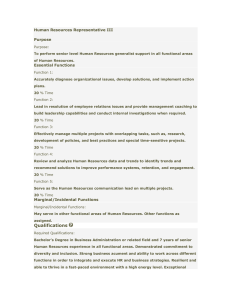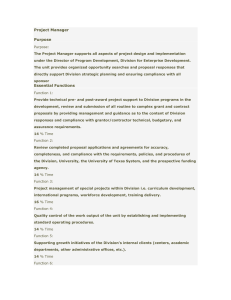Information Security Analyst Purpose
advertisement
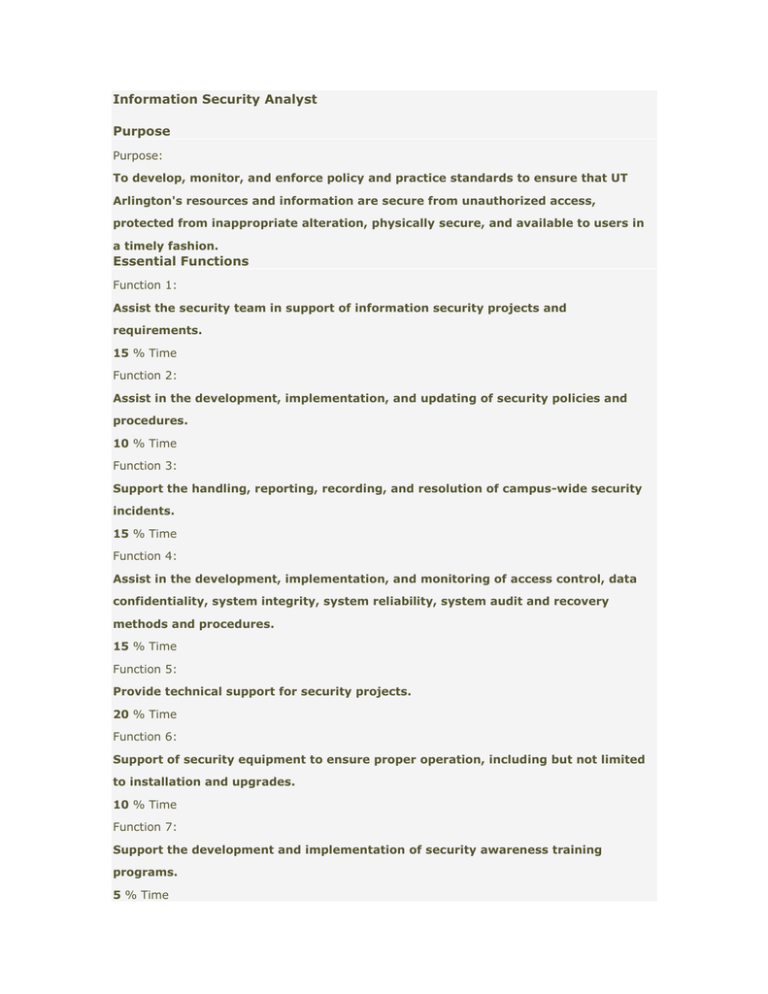
Information Security Analyst Purpose Purpose: To develop, monitor, and enforce policy and practice standards to ensure that UT Arlington's resources and information are secure from unauthorized access, protected from inappropriate alteration, physically secure, and available to users in a timely fashion. Essential Functions Function 1: Assist the security team in support of information security projects and requirements. 15 % Time Function 2: Assist in the development, implementation, and updating of security policies and procedures. 10 % Time Function 3: Support the handling, reporting, recording, and resolution of campus-wide security incidents. 15 % Time Function 4: Assist in the development, implementation, and monitoring of access control, data confidentiality, system integrity, system reliability, system audit and recovery methods and procedures. 15 % Time Function 5: Provide technical support for security projects. 20 % Time Function 6: Support of security equipment to ensure proper operation, including but not limited to installation and upgrades. 10 % Time Function 7: Support the development and implementation of security awareness training programs. 5 % Time Function 8: Interface with OIT and non-OIT personnel to resolve security related issues. 10 % Time Marginal/Incidental Functions Marginal/Incidental Functions: Other functions as assigned. Qualifications Required Qualifications: Bachelor's degree in Information Technology or related field. 2 years experience in information security, risk analysis management, networks, web development, application development or other related field. Applicants must include in their online resume the following information - 1. Employment history,name of company, period employed, from month-year to month-year, job title, summary of job duties and 2. Education college or college degree, list school name, degree type, major, graduated or not, and hours completed if not graduated. Must possess excellent oral and written skills creating programmatic documentation, standard operating procedures and granular process checklists. Preferred Qualifications: Experience with toolsets such as, but not limited to, Intrusion Detection Systems, Intrusion Prevention Systems, Host Based Security Systems, Security Event and Incident Management, DNS security practices, advanced log analysis, network monitoring, network flow analysis, packet capture analysis, network proxies, firewalls, anti-malware analysis, Linux or UNIX command line, Linux or Windows OS administration, and access control lists desired. Enterprise security and network engineering knowledge to integrate capabilities inorder to provide a cohesive operating picture of defence-in-depth, desired. Familiarity with Macintosh OS X, a plus.
